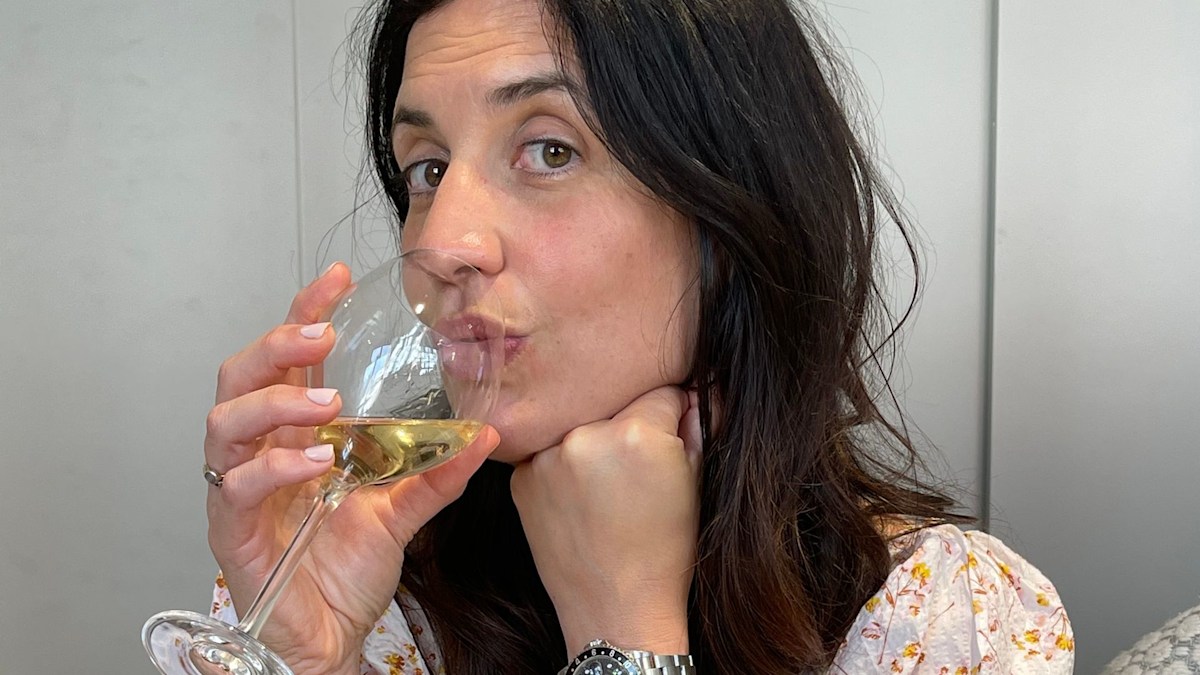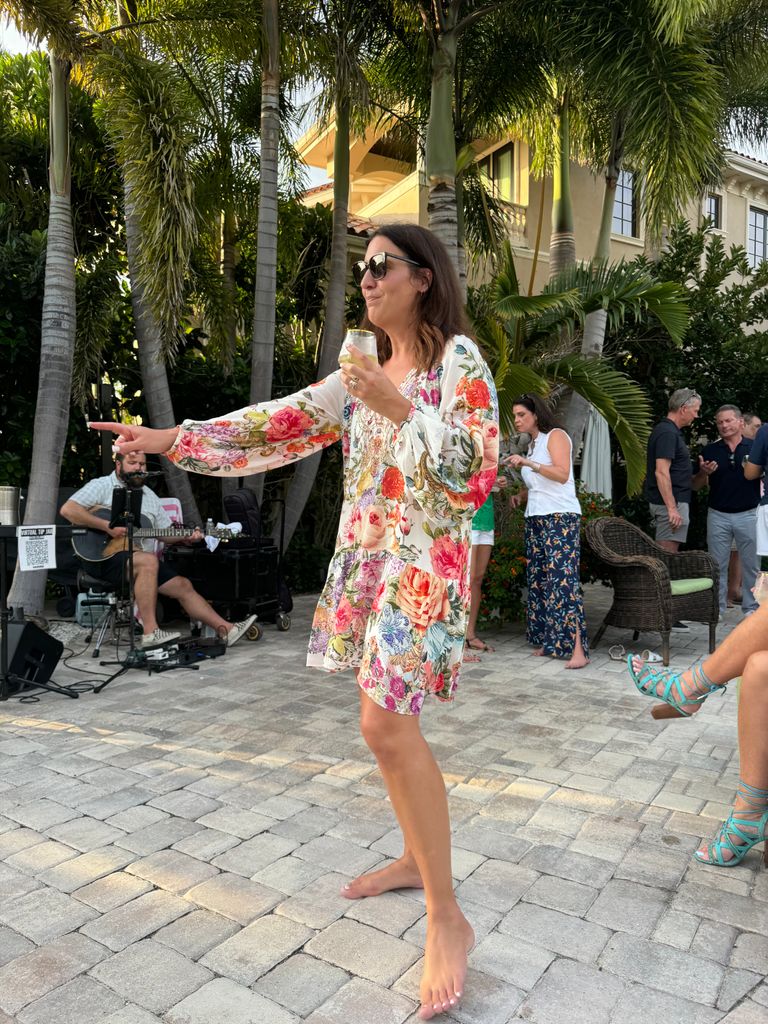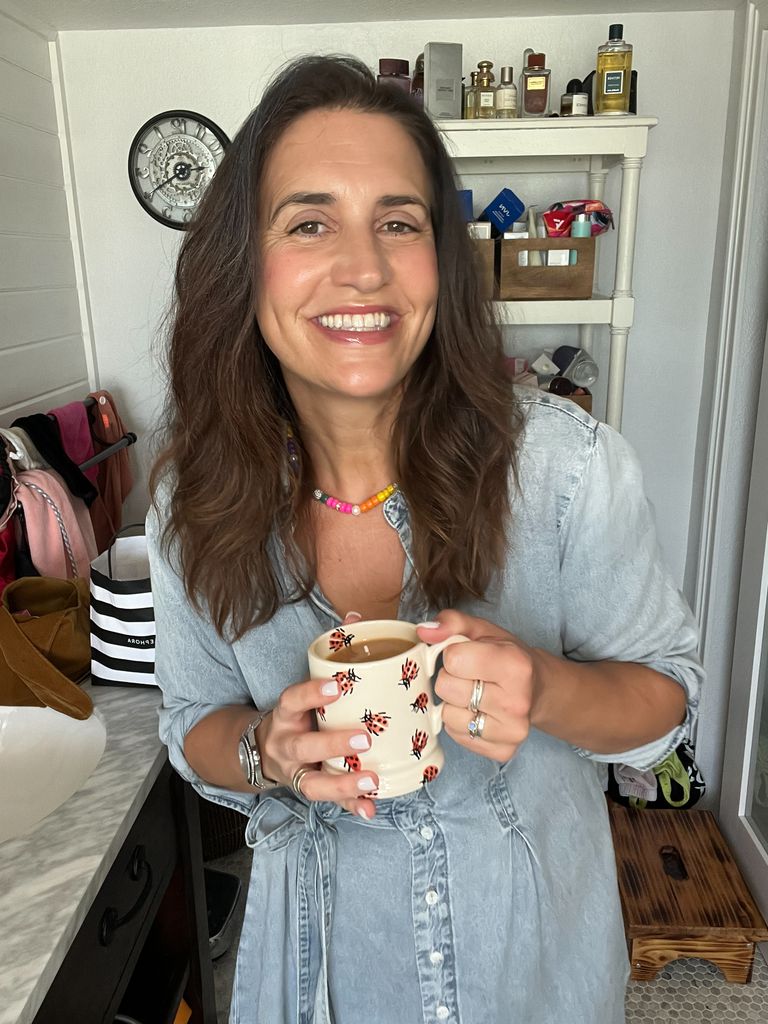“I need to go sober! Midlife drinking is not my friend.”
These words had been going around inside my head for months. This wasn’t a conversation I was having on the outside. Not even with family or friends. It was one of those inner voice chats that reverberated around my mind daily.
And then just over four months ago, I decided to speak those words out loud. Not behind closed doors, with my husband or best mate. Or even a doctor or therapist. Instead, I spoke about my vulnerability around alcohol to thousands of people on Instagram.
I’ve always prided myself on being real and authentic in life and online, and as a Beauty Editor, I’ve become well-known for my honest opinions about products and trends on social media. But sharing my love of lipstick is one thing. Declaring that I think that alcohol is ruining my life is another…
But that Friday morning last July, after a few weeks of drinking way too much wine (summer was always my excuse) my instinct told me that I should share my insecurities about my midlife drinking on social media. And as trusting my instincts is a rule I try to stick by, I decided to go for it.
I’d always enjoyed a drink, but my nightly ‘glass of wine before dinner’ now led to 4am anxiety wake-up calls and feelings of doom and dread the next morning. And I also found myself drinking even when I didn’t really want to. I was bored of being the fun drunk in my friend group and was ready to call the shots in my life. Just not of the tequila kind.
I believed that speaking to my followers on Instagram would hold me accountable, help me stick to sobriety and hopefully help anyone else who is on a midlife sobriety journey too.
And so I posted a very raw and real ‘reel’ explaining how I’d had enough of the effects of drinking in midlife. And I admit – I had butterflies in my stomach when I hit ‘share’ on Instagram that morning. Maybe this was a positive signal from my gut saying that I was doing the right thing. I was nervous about posting something so personal. But then something really powerful happened.
My Instagram blew up and my community showed up for me in a way that I never expected. I was humbled by all of the comments and direct messages lighting up my feed that were filled with words of compassion, understanding, encouragement and respect.
I gained hundreds of more followers, plus calls and text messages from friends and family. Everything from, “What’s brought this on?” and “Why didn’t you tell me?” to, “This is so admirable” and, “You are so brave and courageous.”
Yes, sharing my vulnerability in such a public way held me accountable (and I’m happy to say that I’m still sober four months on and loving it), but just as importantly, it gave me a connection to myself that has been extremely liberating.
I’ve continued to post about my sobriety journey online and being so open about my struggles, especially at 48 – a time in my life when society says that I should have it all together, has made me realize that I’m happier to choose vulnerability over perfection any day.
Being vulnerable has helped me realize who I really am, right to my core.
At midlife, we are so often defined by what ‘has been’ in our lives – our career, our family, our education. But what about now? Who are we really at 40 and beyond? Because one thing is for sure, we are not the same person we were 20 years ago.
Letting go of being or looking ‘perfect’ at this time in my life helped me nurture my compassionate side which is really a big part of my true identity. One that I’ve been nervous to share in midlife.
Maybe it’s my British ‘stiff upper lip’ that was getting in the way? Or bad memories of being the kid at school that would cry ‘at the drop of a hat’ (according to one primary school teacher).
MORE ALCOHOL-FREE INSPO: I quit alcohol for three months – here’s what happened
And then there’s my ‘Beauty Editor’ identity that should be as shiny and glossy as the products I talk about. Having a vulnerable relationship with alcohol doesn’t quite fit the expectations that come with my job.
Yet showing my vulnerability and not pretending everything is okay has helped me build a connection with myself, my family and my beauty community that I didn’t even know was there.
Speaking to your fears, imperfections and insecurities makes you stronger and more resilient and showing your raw and real emotions can bring you genuine happiness.
Read the full article here








